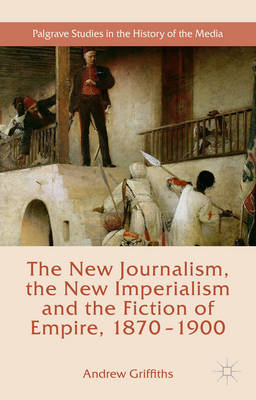Palgrave Studies in the History of the Media
1 total work
The New Journalism, the New Imperialism and the Fiction of Empire, 1870-1900
by Andrew Griffiths
Aggressive policy, enthusiastic news coverage and sensational novelistic style combined to create a distinctive image of Britain's Empire in late-Victorian print media. The New Journalism, the New Imperialism and the Fiction of Empire, 1870-1900 traces this phenomenon through the work of editors, special correspondents and authors including W.T. Stead, H. Rider Haggard, H.M. Stanley, Joseph Conrad and Winston Churchill. This book narrates the rise and fall of a romantic imperial discourse from the emergence of celebrity special correspondents like Archibald Forbes in the 1870s, via the death of General Gordon amidst a media storm in 1885, to the thoroughly unromantic industrial killing reported by Churchill at Omdurman in 1898. Connections between key individuals, events and texts are identified and explored to locate the origins of both a novel approach to reportage and a vision of empire which endures into the twenty-first century.
